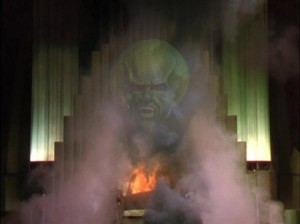 As many of you know by now, I have an incurable fascination with numbers and statistics. Last summer during open voting for the Hugo Awards, we explored much of the historical data associated with the awards.
As many of you know by now, I have an incurable fascination with numbers and statistics. Last summer during open voting for the Hugo Awards, we explored much of the historical data associated with the awards.
The Hugo Award is named after Amazing Stories founder Hugo Gernsback. It was created by the great fans of science fiction for the 11th Worldcon held in Philadelphia in 1953. It is a testament to the resourceful planning and management of the World Science Fiction Society (WSFS) that the award has survived and grown over these many years.
Today, the Hugo Award is considered one of the most prestigious awards in the industry. Many consider it to be the equivalent of Hollywood’s Oscar.
Since the Hugos were named after an editor, I thought it only fair that we consider the enormous impact editors have had on the industry as we examine the Hugo Award by the numbers.
Authors typically receive nearly all the attention for the magnificent tales they weave. Consider then if an author is the great and powerful Oz, that the editor in some ways is the person standing behind the curtain directing the show.

The publishing industry has many layers of editors who review, correct, suggest, encourage, shepherd , and redline before finally waving their hands over the authors baby and declare it ready for the world. Above all, editors read and read and read, until their eyes grow swollen and their heads feel like they might explode, then they read some more.
Editors discover treasures like Hemingway, Faulkner, Heinlein, Pohl, and Le Guin. They help shape authors from raw clay into Grand Masters.
A good editor also knows when to step back and realize “she’s got this”, rather than force an alternate view into a story. Some authors require heavy editing, others very little. The best editors manage the balance.
Life as an editor is not all glamour. The mountain of manuscripts piles higher and higher every day until it blots out the sun. Authors greatly outnumber editors. There are thousands of stories to read for every pair of eyes. Discovering greatness takes skill, insight, intuition, and luck.
Some have speculated on the number of Hemingways and Asimovs that may never have made it out of the slush pile. Certainly there are a few at least. Editors lose sleep over undiscovered greatness.
Others wonder what would have happened without brave editors choosing to allow the science fiction industry to forge new trails. Would we have had the New Wave or Cyberpunk? How many paths were never taken because they gate was thrown shut?
Editors are the gatekeepers. Haggardly they march along towards a series of never ending deadlines with the knowledge that somewhere in that stack of unread paper hides greatness.
The Hugo Awards began honoring the Best Professional Editor in 1973. In 2007, the award split into two categories Long Form and Short Form. We will pull data from all three categories. The awards offer us insight into the greats of the profession.
Most Hugo Award Nominations for Best Editor (any form)
- Stanley Schmidt (34 nominations)
- Edward L. Ferman (20)
- Gardner Dozois (20)
- David G. Hartwell (19)
- Ellen Datlow (17)
- Gordon Van Gelder (14)
- Terry Carr (13)
- Patrick Nielsen Hayden (10)
- Ben Bova (8)
- James Bean (8)
- Sheila Williams (8)
- Stanley Schmidt was nominated every year from 1980 to 2013. His streak of 34 consecutive nominations is by far the longest in any Hugo category.
- In 2014, only Lee Harris received a first time nomination.
Most Hugo Awards for Best Editor (any form)
- Gardner Dozois (15 awards)
- Ben Bova (6)
- Ellen Datlow (4)
- David G. Hartwell (3)
- Edward L. Ferman (3)
- John W. Campbell, Jr. (3)
- Patrick Nielsen Hayden (3)
- Gardner Dozois won the award every year from 1988 to 1993 and then again from 1995 to 2001. Streaks of six and seven years in a row.
- Amongst this year’s nominees only Ellen Datlow and Sheila Williams have previously won the award.
Publications with the Most Hugo Award Nominations for Best Editor
- Analog (45 nominations)
- Fantasy & Science Fiction (43)
- Tor Books (37)
- Asimov’s Science Fiction (36)
- Note that the total number of nominations takes into account the ever changing names of science fiction magazines.
- An editor from Analog Science Fiction and Fact has been nominated in every year of the award except 2014, including all four retro awards.
Publications with the Most Hugo Awards for Best Editor
- Asimov’s Science Fiction (20 awards)
- Analog (10)
- Fantasy & Science Fiction (6)
- Tor Books (6)
- In 2014, Asimov’s Science Fiction and Tor Books have the opportunity to add to their awards total.
I hope you found something interesting here. Happy Hugo voting.










